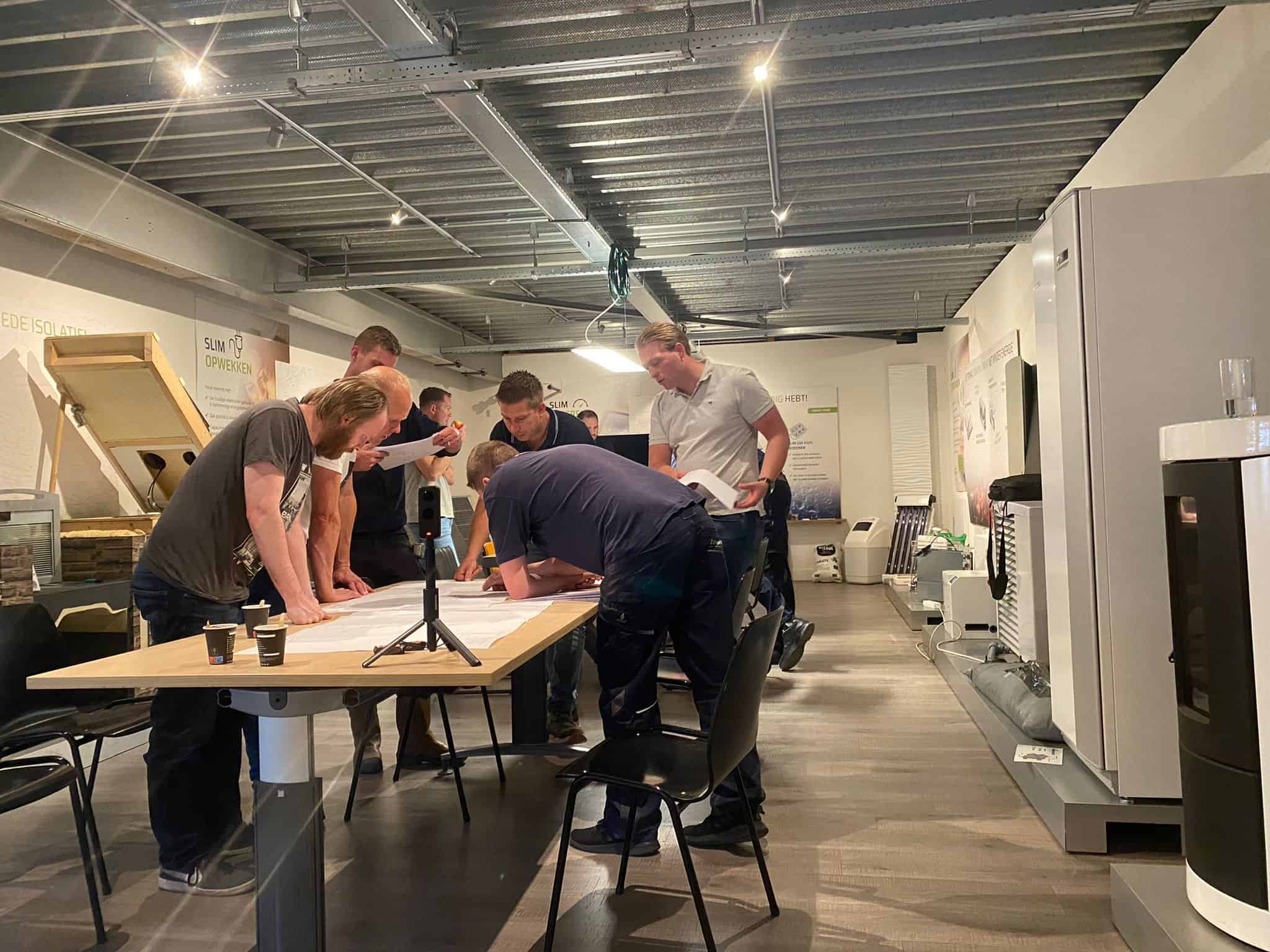
People from many different countries live, study and work in Eindhoven. Every week, Innovation Origins has a talk with an international about what brought them here and what life is like in Eindhoven.
Name: Ed Heerschap
Country of origin: the Netherlands
Work: Program coordinator Living In at the Expat Center
After more than a hundred stories of Eindhoven residents from all over the world, we keep it close to home today with the story of Ed. As a program coordinator at the Expat Center internationals are one of his top priorities. “This is the best job ever for me,” Ed enthusiastically starts his story, “Every day, I am working with our team to improve the living environment of Eindhoven. Because it is, of course, very nice that so many people from all over the world come to study and work, but we also want them to stay here. A good living environment contributes to that. By experiencing an emigration up close in his private life, Ed knows it doesn’t always go smoothly: “It is tough when you live in another country and all your friends and family are far away. That is why it is so important that we give a warm welcome to all internationals who come to Eindhoven. Here at the Expat Center we are always working on how we can help them in the best way.”
On a large screen, Ed shows a model with the priorities of the Living In Program, which should ensure that as many people as possible stay in Eindhoven and its surrounding areas. “We work together with a steering committee with, among others, members from the business community, education and the municipality. An important partner in this group is the Expat Spouses Initiative. The spouses, often highly educated women, move with their husband to the Netherlands, but cannot immediately find a job in their own expertise here. Often they do not have a tech background. That is something, it is such a change. These women are so important for a family’s decision to stay here. Thanks to the Regio Deal Brainport Eindhoven, the financial impulse of the national government for our region, we are able to work on the good start for the whole family instead of just the employee. A professor once said ‘You don’t hire a brain, you hire a family’. And that’s where the large companies have their responsibility. In the case of the spouses, we choose not to talk about them, but to talk to them and work with them. You achieve more this way.”
Ed emphasizes again the importance of this group of internationals. “Imagine you give up your own career so your partner can develop his career. So a big group of talents comes to the Netherlands for whom we don’t immediately have a place on the labour market. That is why we have set up Women for Women, among other things. A project in which we connect women with a strong network, our ambassadors, to women who are looking for a professional network, the talents. The ambassadors help the talents to take steps towards professional integration, by using their own network. We create valuable connections and that is so awesome to do! This way I would like to help at least 125 spouses to get work in the next three years.”
(Story continues after photo)

“There is room for improvement for companies, especially the small and medium-sized enterprises. We have so much talent here. Let the international gain easily accessible experience in the Dutch economy. This is possible with midlife internships. I understand that it is a big step for a company to have a non-Dutch speaking employee in the company. The first one they hire, paves the way for a next international. Of course, also a number of internationals work within our own organization. Visitors are always welcomed at the reception desk by our colleague from Luxembourg and she is assisted every day by an international volunteer. Furthermore, our team consists of a Belgian and an American.”
One of the priorities is to improve accessibility, in the broadest sense of the word. “Everything is available in Eindhoven, but not everything is accessible to the international. By translating a lot of information into English, we have come a long way. Accessible facilities are helpful in retaining talent. This creates a bond with the city, a network and a feeling of being at home. We specifically focus on facilities for culture, sport and language to preserve that talent. Learning Dutch is also crucial. That seems to be an easy thing, starting a course, but that also comes with all kinds of obstacles: high costs for the lessons and for families with small children it is difficult to plan the lessons. The offer must be made more accessible, for all internationals. And very important is that the employer of the knowledge worker with the job also feels responsible for integrating the family. Compensating the language lessons of the talented spouse by that employer is not such a crazy idea.” The Expat Center works with the Living In program on an ecosystem in which every talent can land. Ed does this by boosting and connecting projects and people and by working with international talent on a daily basis. “I am convinced that within a few years we will be more inclusive and as a region, we will become even more attractive to international talent.”
This is the last interview in the series Internationals in Eindhoven by photographer Diewke van den Heuvel and writer Sabine te Braake. Next week they look back on two years of interviews with more than a hundred internationals.
Read more stories of internationals here.








